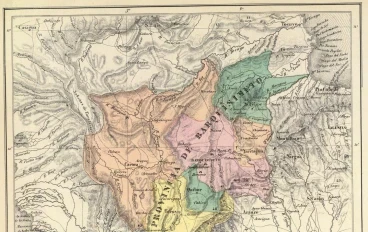
The great civilization of Egypt
Egyptian History: A Journey Through Time
Ancient Egypt, with its rich and fascinating history, has captured the imagination of people around the world for centuries. From the majestic pyramids to the enigmatic hieroglyphics, Egypt's past is a treasure trove of wonders waiting to be explored.
One of the earliest civilizations in the world, ancient Egypt emerged around 3100 BC when King Menes unified the Upper and Lower Kingdoms. This marked the beginning of the Old Kingdom period, a time of great prosperity and monumental construction projects. The pyramids of Giza, built as tombs for pharaohs, stand as enduring symbols of the Egyptians' architectural and engineering prowess.
The Old Kingdom gave way to the Middle Kingdom around 2055 BC, a period characterized by increased stability and cultural development. It was during this time that literature, art, and religion flourished, with the creation of iconic works such as "The Tale of Sinuhe" and the “Stele of Hammurabi.”
However, the Middle Kingdom was followed by a period of upheaval known as the Second Intermediate Period, marked by foreign invasions and internal strife. Eventually, a new dynasty of pharaohs, the New Kingdom, emerged to restore Egypt's glory. This era, which lasted from around 1550 to 1070 BC, saw the rise of powerful rulers like Hatshepsut, Thutmose III, and Ramesses II.
The New Kingdom was a time of great expansion and conquest, as Egyptian armies ventured far beyond the borders of the Nile Valley. The empire reached its greatest extent under the reign of Thutmose III, who conducted military campaigns in Syria, Nubia, and Mesopotamia, bringing wealth and prestige to Egypt.
Religion played a central role in ancient Egyptian society, with gods and goddesses worshiped in temples across the land. The pharaoh, believed to be a divine ruler, was responsible for maintaining order and harmony in the universe. The construction of magnificent temples like Karnak and Luxor was a testament to the Egyptians' deep religious beliefs.
One of the most enduring mysteries of ancient Egypt is the decipherment of hieroglyphics, the intricate writing system used by the Egyptians. Thanks to the discovery of the Rosetta Stone in 1799, scholars were able to unlock the secrets of this ancient script, shedding light on the history and culture of Egypt.
The decline of ancient Egypt began around 1070 BC with the invasion of the Sea Peoples and the collapse of the New Kingdom. The country fell into a period of division and instability, known as the Third Intermediate Period, before being reunified by the pharaohs of the Late Period.
In 332 BC, Egypt fell to the armies of Alexander the Great, marking the beginning of a new era of Hellenistic rule. The Ptolemaic dynasty, founded by Alexander's general Ptolemy, would govern Egypt for nearly three centuries, blending Greek and Egyptian traditions to create a unique cultural fusion.
The last pharaoh of Egypt was Cleopatra VII, a descendant of the Ptolemies, whose reign ended with the Roman conquest in 30 BC. Egypt became a province of the Roman Empire, ushering in a new chapter in its history.
Despite centuries of foreign rule and cultural change, Egypt's ancient heritage continued to influence art, architecture, and religion throughout the Mediterranean world. The legacy of the pharaohs lives on in the monuments and artifacts that have survived to this day, reminding us of the enduring allure of Egypt's timeless past.:
The Roman period in Egypt brought significant changes to the country's administration, economy, and culture. The Romans built new cities, such as Alexandria, which became a center of learning and commerce in the ancient world. The famed Library of Alexandria housed a vast collection of knowledge and attracted scholars from far and wide.
With the spread of Christianity in the Roman Empire, Egypt also underwent a religious transformation. The Coptic Church emerged as a major religious institution, blending Christian beliefs with Egyptian traditions. Monasticism thrived in the deserts of Egypt, with famous figures like St. Anthony the Great leading a life of asceticism and spiritual devotion.
In the 7th century AD, Egypt came under the rule of the Islamic Caliphate after the Arab conquest of the region. Islam became the dominant religion, and Arabic replaced Coptic as the primary language. The Fatimid Caliphate, founded in Egypt in the 10th century, left a lasting architectural legacy in Cairo with landmarks like the Al-Azhar Mosque and the Mosque of Ibn Tulun.
Throughout the medieval period, Egypt remained a pivotal center of trade and culture, connecting the East and West through its strategic location at the crossroads of major trade routes. The Mamluks, a warrior class of slave soldiers, rose to power in Egypt in the 13th century and ruled the country for several centuries, leaving behind a legacy of grand mosques, madrasas, and palaces.
In the 19th and 20th centuries, Egypt experienced a wave of modernization and political change. The construction of the Suez Canal in 1869 connected the Mediterranean Sea to the Red Sea, transforming Egypt into a global hub for trade and maritime commerce. European powers vied for influence in Egypt, leading to periods of colonial rule and nationalist resistance.
Egyptian nationalism grew in the early 20th century, culminating in the revolution of 1952, which led to the overthrow of the monarchy and the establishment of a republic. Gamal Abdel Nasser, one of the leaders of the revolution, became the dominant figure in Egyptian politics and embarked on ambitious projects to modernize the country's economy and infrastructure.
Today, Egypt remains a land of contrasts, where ancient traditions coexist with modern developments. The iconic monuments of the pharaohs stand as a testament to Egypt's enduring legacy, while bustling cities like Cairo and Alexandria pulse with energy and innovation.
As we journey through the annals of Egyptian history, we are reminded of the resilience and creativity of a civilization that has left an indelible mark on the world. From the banks of the Nile to the towering pyramids, Egypt's story continues to captivate and inspire generations to come.
































